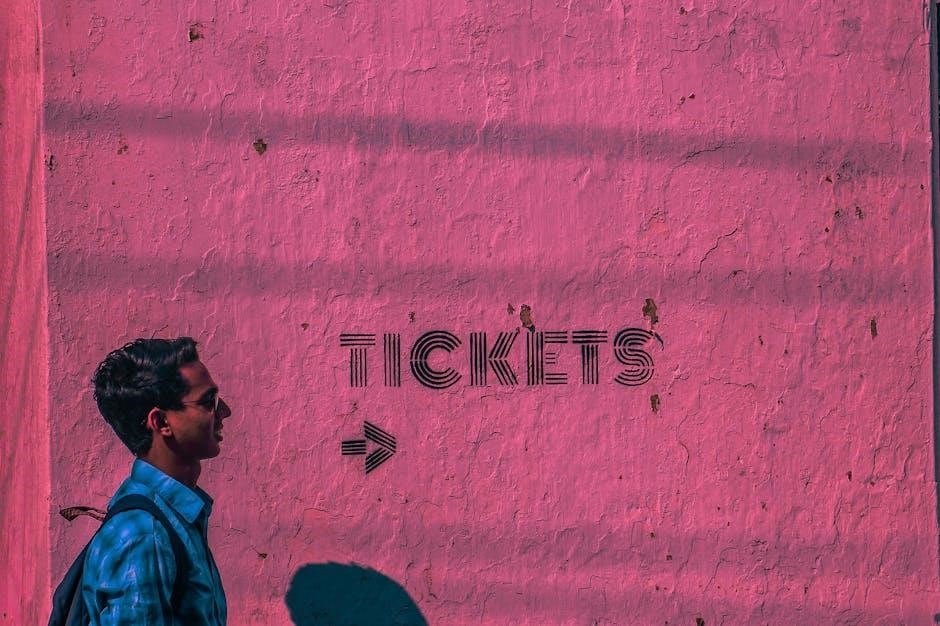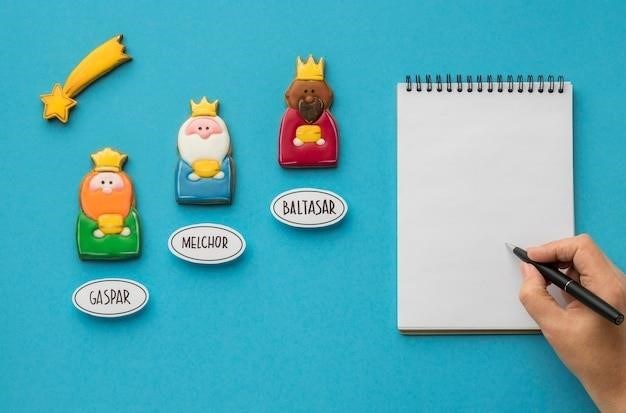a guide to coin hunting
Coin Roll Hunting⁚ A Beginner’s Guide
Coin roll hunting is a fun and rewarding hobby that allows you to discover valuable coins in everyday pocket change. This guide will provide you with the essential information you need to get started‚ from choosing your coins to finding the right banks and organizing your hunt.
What is Coin Roll Hunting?
Coin roll hunting‚ also known as bank roll hunting‚ is a popular hobby that involves searching through rolls of coins for rare or valuable specimens. The basic premise is simple⁚ you purchase rolls of coins from a bank or other financial institution and carefully examine each coin for any interesting or unusual characteristics. This could include coins with mint errors‚ older silver coins‚ or even foreign coins that have somehow found their way into circulation.
While some may view it as a form of treasure hunting‚ coin roll hunting is more about the thrill of the discovery and the satisfaction of finding a hidden gem. It’s a hobby that can be enjoyed by people of all ages and skill levels‚ and it’s a great way to learn about the history and numismatics of coins.
Why is Coin Roll Hunting Popular?
Coin roll hunting has gained popularity for several reasons‚ appealing to collectors and casual enthusiasts alike. The thrill of the hunt is a major draw‚ as the possibility of discovering a valuable coin in a seemingly ordinary roll of change is undeniably exciting. It’s a hobby that combines elements of chance‚ detective work‚ and historical appreciation;
Beyond the excitement of finding rare or valuable coins‚ coin roll hunting offers a unique way to learn about numismatics and the history of money. Examining coins closely allows you to appreciate their design‚ craftsmanship‚ and the stories they tell about past eras. It’s a hands-on way to connect with history and develop a deeper understanding of the tangible objects that have shaped our world.
Furthermore‚ coin roll hunting can be a relatively inexpensive hobby‚ as you’re primarily searching for coins that are already in circulation. While the potential for significant finds exists‚ the enjoyment of the hobby itself often outweighs the financial reward.
Getting Started with Coin Roll Hunting
Embarking on your coin roll hunting journey requires a few initial steps to ensure a smooth and successful experience. First‚ you’ll need to gather the necessary supplies‚ including a coin sorting tray‚ a magnifying glass‚ and a reference guide or app to identify different coins and their values. These tools will be invaluable for examining and organizing your finds.
Next‚ it’s crucial to familiarize yourself with the basics of coin collecting and understand the factors that determine a coin’s value. Research the different types of coins you might encounter‚ such as silver coins‚ error coins‚ or coins with historical significance. Understanding the key features to look for‚ such as mint marks‚ dates‚ and condition‚ will help you identify potentially valuable coins.
Finally‚ before embarking on your first hunt‚ consider setting a budget and establishing a clear goal for your collection. Deciding whether you’re looking for specific denominations‚ years‚ or types of coins will help you focus your search and make the most of your time and effort.
Choosing Your Coins
The first step in your coin roll hunting adventure is deciding which coins to focus on. While you might be tempted to search through every denomination‚ it’s often more efficient to narrow your focus. Consider your interests and the types of coins that excite you. For example‚ if you’re fascinated by silver coins‚ you could concentrate on half-dollars‚ quarters‚ or dimes minted before 1965‚ which contain a significant silver content.
Another popular choice is to target error coins‚ which are coins with imperfections or variations in their design or production. These can be highly valuable to collectors. You could also choose to specialize in a particular era‚ such as the early American coins or the more recent state quarters series.
Remember‚ the key is to choose coins that you find intriguing and that you’ll enjoy collecting. As your knowledge and experience grow‚ you can always expand your search to include other denominations or types of coins.
Finding the Right Banks
Once you’ve chosen your target coins‚ the next step is to find banks that are willing to sell you coin rolls. Not all banks are created equal when it comes to coin roll hunting. Some banks may charge fees for coin rolls‚ while others may be more accommodating to coin hunters. It’s essential to research and find banks that are known to be friendly and willing to work with collectors.
Start by asking around in your community. Talk to other coin hunters‚ local collectors‚ or even bank employees. You can also search online forums and websites dedicated to coin roll hunting for recommendations. Once you’ve identified a few promising banks‚ it’s a good idea to visit them in person to ask about their coin roll policies. Be polite and explain that you’re a hobbyist interested in finding interesting coins.
Remember‚ building relationships with bank employees can go a long way in your coin roll hunting journey. By being courteous and respectful‚ you’ll increase your chances of finding those hidden gems!
Organizing Your Hunt
Organizing your coin roll hunting expeditions is crucial for maximizing your chances of finding valuable coins. A well-structured approach will help you stay focused‚ efficient‚ and avoid overlooking any potential treasures. Here are some helpful tips for organizing your hunts⁚
First‚ create a dedicated space for your coin hunting supplies. This could be a desk‚ a table‚ or even a corner of a room. Having a designated area for sorting‚ storing‚ and researching coins will make your hunting process smoother and more enjoyable. Second‚ invest in a few essential tools. These include a magnifying glass‚ a coin book‚ and a coin grading guide. These tools will help you identify and assess the value of the coins you find.
Finally‚ keep a log of your coin roll hunting activities. Record the date‚ bank‚ denomination of coins‚ and any interesting finds. This log will help you track your progress‚ identify patterns‚ and potentially lead you to more successful hunts.
Tips for Successful Coin Roll Hunting
Coin roll hunting can be a rewarding hobby‚ but it takes some knowledge and strategy to maximize your chances of finding valuable coins. Here are some tips to help you become a successful coin roll hunter⁚
Firstly‚ familiarize yourself with common coin varieties and their values. Use online resources‚ coin books‚ and coin collecting communities to learn about the different types of coins you might encounter‚ including silver coins‚ error coins‚ and commemorative coins. Secondly‚ develop your coin identification skills. Learn to spot telltale signs of valuable coins‚ such as mint errors‚ unique designs‚ and unusual dates. Pay close attention to details such as the date‚ mint mark‚ and condition of the coin.
Finally‚ practice patience and persistence. Coin roll hunting is not about getting rich quick; it’s about the thrill of the hunt and the joy of discovering hidden treasures. Don’t get discouraged if you don’t find anything valuable right away. Keep searching‚ keep learning‚ and you’ll eventually find those hidden gems.
Understanding Coin Values
The value of a coin is determined by a number of factors‚ including its rarity‚ condition‚ and historical significance. Understanding these factors is essential for successful coin roll hunting. Rarity refers to how many of a particular coin were minted‚ with rarer coins generally being more valuable. Condition is a measure of how well-preserved a coin is‚ with coins in better condition typically commanding higher prices. Historical significance refers to the importance of a coin in relation to a particular event or period‚ which can also increase its value.
It’s important to note that not all coins are valuable. Common coins‚ such as those minted in large quantities and in good condition‚ are generally worth only their face value. However‚ even common coins can be valuable if they have unusual characteristics‚ such as mint errors or unique designs. To determine the value of a coin‚ it’s recommended to consult with a coin dealer or use online resources such as coin collecting websites and apps.
Identifying Rare Coins
Identifying rare coins can be a challenge‚ but with a little practice and research‚ you can learn to spot the telltale signs of valuable finds. Begin by familiarizing yourself with the different types of coins that are commonly circulated in your area. Pay attention to details like dates‚ mint marks‚ and variations in design. For example‚ a 1944 steel penny is a rare and valuable coin‚ as most pennies minted in that year were made of copper. It’s also worth knowing about common mint errors‚ such as doubled dies or off-center strikes‚ which can significantly increase a coin’s value.
Utilize online resources and coin collecting guides to help you identify rare coins. There are numerous websites and books dedicated to coin collecting‚ providing detailed information on coin varieties‚ values‚ and identification tips. Consider joining online forums or local coin clubs to connect with other collectors and learn from their experiences. The more you learn about coins‚ the better equipped you’ll be to spot those hidden gems in your coin rolls.
Storing Your Finds
Proper storage is crucial for preserving the value and condition of your coin finds. Avoid handling coins excessively‚ as fingerprints and scratches can diminish their value. Invest in coin flips‚ coin capsules‚ or coin albums to protect your coins from damage and oxidation. Coin flips are inexpensive and provide basic protection‚ while coin capsules offer a higher level of security. Coin albums allow you to organize your collection by date‚ denomination‚ or other criteria.
Store your coins in a cool‚ dry place‚ away from direct sunlight and humidity. Consider using a humidity control device to maintain a consistent environment for your collection. If you have valuable coins‚ it’s a good idea to keep them in a safe or lockbox to deter theft. Remember‚ proper storage not only preserves the value of your coins but also enhances their overall appeal and enjoyment for years to come.
Resources for Coin Roll Hunters
The world of coin roll hunting is filled with helpful resources that can enhance your knowledge and success. Online communities like r/CRH provide a platform for connecting with fellow enthusiasts‚ sharing finds‚ and seeking advice. You can find valuable insights on identifying rare coins‚ understanding coin values‚ and staying updated on the latest discoveries. Coin collecting books and guides offer a wealth of information on coin history‚ grading‚ and identification. Look for reputable authors and publishers that focus on US coins and provide comprehensive details on specific coin types.
Coin shows and auctions offer a great opportunity to connect with experienced collectors‚ learn from experts‚ and potentially purchase rare coins. These events often feature dealers who can provide valuations for your finds and offer guidance on building your collection. By utilizing these resources‚ you can continuously expand your knowledge and refine your coin roll hunting skills.
Online Communities
The internet offers a treasure trove of resources for coin roll hunters‚ and online communities are among the most valuable. These virtual spaces bring together enthusiasts from all walks of life‚ creating a vibrant network of shared knowledge and support. Platforms like r/CRH serve as a hub for coin roll hunting enthusiasts‚ providing a platform for sharing finds‚ discussing strategies‚ and seeking advice from seasoned collectors. Members can post pictures of their discoveries‚ ask questions about specific coins‚ and participate in lively discussions about the latest trends in the hobby.
These communities are a goldmine of information‚ offering insights into coin values‚ identification tips‚ and the latest market trends. Engaging with fellow hunters can help you refine your search strategies‚ learn about new and exciting discoveries‚ and connect with others who share your passion for coin hunting.
Coin Collecting Books and Guides

For those seeking a deeper dive into the world of coin collecting‚ books and guides provide a wealth of knowledge and expertise. These resources offer comprehensive information on coin identification‚ grading‚ and valuation‚ empowering you to confidently navigate the intricate world of numismatics; Whether you’re a novice or seasoned collector‚ a well-chosen guide can be an invaluable companion on your coin hunting journey.
A wide range of books cover various aspects of coin collecting‚ from general guides to specialized volumes focusing on specific coin series or eras. These publications can provide detailed descriptions‚ historical context‚ and insights into the factors that influence coin value. Many guides also offer practical advice on organizing your collection‚ protecting your finds‚ and even exploring the exciting world of coin auctions and shows.
Coin Shows and Auctions
Coin shows and auctions offer a vibrant and dynamic environment for coin enthusiasts to connect‚ learn‚ and expand their collections. These events provide a unique opportunity to engage with experienced collectors‚ dealers‚ and experts‚ gaining valuable insights and uncovering hidden treasures. Coin shows often feature a diverse array of exhibits‚ presentations‚ and educational sessions‚ while auctions offer a thrilling platform to acquire rare and valuable coins.
Whether you’re looking to purchase a specific coin‚ learn about coin grading‚ or simply immerse yourself in the world of numismatics‚ coin shows and auctions provide a stimulating and enriching experience. These events offer a chance to connect with fellow collectors‚ discover new finds‚ and expand your knowledge of the fascinating history and value of coins.
Coin Roll Hunting⁚ Beyond the Basics
For those seeking a deeper dive into the world of coin roll hunting‚ several advanced techniques and avenues can elevate your hobby. Coin grading‚ often a complex process‚ allows you to accurately assess the condition and value of your finds. This knowledge is crucial for maximizing the potential return on rare or valuable coins. Metal detecting‚ a captivating pursuit in its own right‚ opens doors to discovering coins and other historical artifacts hidden beneath the earth’s surface.
Finally‚ building a coin collection is a rewarding journey that involves meticulous organization‚ research‚ and curation. Whether focusing on specific denominations‚ mint errors‚ or historical periods‚ a well-curated collection reflects a passion for numismatics and can become a valuable legacy for generations to come.

Advanced Coin Grading
Coin grading is an essential skill for serious coin roll hunters‚ as it allows you to determine the condition and value of your finds with greater accuracy. While a basic understanding of wear and tear is helpful‚ a deeper knowledge of grading standards is crucial for maximizing the value of rare or valuable coins.
The most common grading system used by collectors is the Sheldon Scale‚ which assigns numerical grades from 1 to 70 based on the coin’s condition. A coin graded “Mint State 65” (MS-65) is considered to be in excellent condition with little to no wear‚ while a coin graded “Poor 1” (P-1) is heavily worn and damaged.
Learning to accurately grade coins involves studying reference materials‚ attending coin shows‚ and consulting with experienced collectors or professional graders. This investment of time and effort can pay dividends in the form of increased knowledge‚ better coin selection‚ and potentially higher profits.


